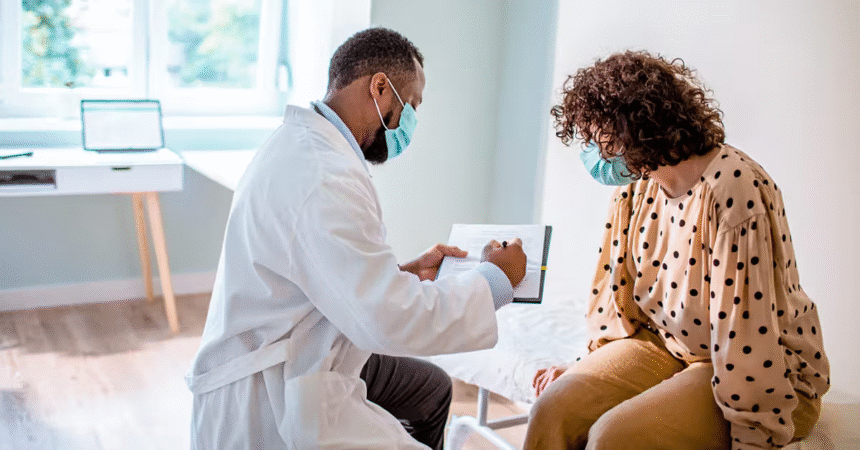In the hustle and bustle of daily life, it’s easy to overlook the importance of routine health check-ups. Many people only visit a doctor when they’re feeling unwell, but routine check-ups play a vital role in preventing illnesses, detecting health conditions early, and maintaining overall well-being.
Here’s why scheduling regular check-ups should be a top priority in your health care routine:
1. Early Detection of Health Problems
Routine check-ups are an effective way to catch potential health issues before they become serious. Many diseases, including diabetes, hypertension, and certain types of cancer, may not show noticeable symptoms in their early stages. By getting regular screenings, doctors can identify warning signs that might otherwise go unnoticed. Early detection can lead to more effective treatment and a better outcome.
Tip: Ask your healthcare provider about the screenings or tests you need based on your age, gender, and family history.
2. Prevention is Better Than Cure
Preventive care is one of the main reasons for having regular check-ups. During these visits, your doctor can advise you on lifestyle changes or vaccinations that can prevent illnesses. Whether it’s a flu shot, cholesterol test, or advice on diet and exercise, a routine check-up allows your doctor to help you stay ahead of health problems before they even begin.
Tip: Don’t wait for symptoms to appear. Preventive care can help reduce your risk for many chronic diseases.
3. Monitor Existing Health Conditions
For individuals already dealing with chronic health conditions, routine check-ups are essential for managing these conditions effectively. Whether it’s managing blood pressure, diabetes, asthma, or thyroid disorders, regular visits to your healthcare provider allow for ongoing monitoring and adjustments to treatment plans. This proactive approach ensures that conditions are well-controlled and complications are minimized.
Tip: Keep track of your medications and share any changes in your health with your doctor to ensure the most effective treatment.
4. Establishing a Relationship with Your Healthcare Provider
Routine check-ups help you build a relationship with your healthcare provider, which can be beneficial in times of illness or emergencies. A trusted doctor who is familiar with your medical history can provide personalized care and advice that is specific to your needs. Additionally, having an established relationship with a healthcare provider can make it easier to seek help when you need it.
Tip: Don’t hesitate to ask questions during your check-up. This is your opportunity to discuss any concerns or seek advice on maintaining good health.
5. Maintaining Mental and Emotional Well-being
Routine check-ups are not just about physical health; they also give you a chance to talk about your mental and emotional well-being. Stress, anxiety, and depression can affect your physical health in various ways. During check-ups, you can discuss your mental health with your doctor, who may suggest resources, coping strategies, or referrals to mental health specialists if needed.
Tip: Mental health is just as important as physical health. Don’t be afraid to talk about your feelings and seek support.
6. Peace of Mind
Knowing that you are actively taking steps to monitor your health gives you peace of mind. Even if you feel fine and have no symptoms, regular check-ups reassure you that you’re doing everything you can to maintain good health. Being informed about your health status helps you make better decisions about lifestyle choices and treatment options.
Tip: Regular check-ups can help reduce anxiety about unknown health problems, offering reassurance and the knowledge you’re taking the right steps.
What to Expect During a Routine Check-up:
A routine check-up typically involves a physical exam where the doctor will check your vital signs (such as heart rate, blood pressure, and temperature), assess your overall health, and screen for any potential issues. Depending on your age, gender, and medical history, your doctor may recommend additional screenings, such as blood tests, cholesterol checks, mammograms, or prostate exams.
Your healthcare provider will also take the opportunity to discuss your lifestyle, diet, exercise, and mental health. You may receive vaccinations or updates on preventive measures such as flu shots and screenings for conditions like cancer or diabetes.
Conclusion:
Routine check-ups are an essential part of maintaining a healthy lifestyle. By making them a regular part of your healthcare routine, you ensure that potential health problems are detected early, chronic conditions are managed effectively, and you receive valuable advice on maintaining long-term health. Taking proactive steps to safeguard your well-being today can lead to a healthier, happier tomorrow.
So, don’t wait until something goes wrong—schedule your next check-up today! Your future self will thank you for it. 🩺✨







